Director Orlando von Einsiedel has teamed up with Leonardo DiCaprio and Netflix to share Virunga with the entire world. The film was released November 7, 2014 on Netflix.
Virunga was filmed at the Virunga National Park in the Democratic Republic of the Congo which is home to more than half of the world’s remaining mountain gorillas. Mountain gorillas are listed as critically endangered by the International Union for Conservation of Nature (IUCN) (founded in 1948 in France).
Mountain gorillas are found only in the Democratic Republic of the Congo and Uganda. In the Congo they live in the Virunga National Park (8 volcanoes: 6 dormant and 2 active) which borders the Uganda and Rwanda. In Uganda they live in the Bwindi Impenetrable National Park.
According to a survey/census conducted by the Ugandan Wildlife Authority the estimated population of the mountain gorillas is 880. The 2012 report indicates 400 in Uganda and incorporates a 2010 survey which counted 480 in the Congo.
At the outset of the Virunga documentary we are shown footage of a funeral service for Virunga National Park Ranger Kasereka Kipako (age 34) who was ambushed and murdered at his patrol post in 2013.
We are then presented with a brief summary of the history of colonial Congo (Congo Free State 1877–1908 and Belgian Congo 1908–1960) which is shown in photographs and video footage. These are accompanied by a song called We Will Not Go which was composed by J. Ralph and performed by Salif Keita, Fally Ipupa and Youssou Nddour.
Include in the intro is the policy implemented by the white Europeans of cutting off the hands innocent children and wives as punishment for their Congolese fathers/husbands not meeting the rubber collection quota:
We are also introduced to early post-colonial Congo (1960) and Patrice Lumumba – a Congolese independence leader and the first democratically elected Prime Minister of the post-colonial Congo. He was executed by firing squad on January 17, 1961 (at age 35) by United States & Belgian backed forces.
Some of the documentary takes place at a gorilla orphanage (the only one in the world) called Senkwekwe Center in Rumangabo which is located in the southern sector of Virunga National Park.
At the gorilla orphanage we meet Andre Bauma who is a gorilla caretaker. He appears to be a very likable guy and he has thoroughly dedicated his life to helping the mountain gorillas.
There are four (4) young mountain gorillas at the orphanage and the film indicated that are the mountain gorillas in captivity in the world.
Their names are:
Maisha: She was rescued at age 3. Poachers had killed her mother and father and were going to sell the baby (Maisha). Poachers typically kill the gorilla parents because they will fight to the death to protect their children.
Kaboko: He lost one of his hands to poachers.
Ndeze: One of the two survivor (young female) of a 2007 gorilla massacre.
Ndakasi: One of the two survivor (young female) of a 2007 gorilla massacre.
Here is a picture of gorilla caretaker Andre Bauma with the four young gorillas whom he considers to be part of his family:
In 2007 a family of mountain gorillas were killed by poachers in hopes of discouraging the rangers into giving up efforts to protect Virunga National Park. Some of the immense mountain gorillas were so large and that it took what appears, at some points, to be at least thirteen (13) men to carry just one of them on an improvised stretcher.
The mountain gorillas were given funerals and they rest in a cemetery complete with gravestones which bare their names, ages and dates of death:
Fast forward to 2010: Poachers are still problem but they are no longer the most substantial obstacle for the park rangers and nor the largest threat to the mountain gorillas. A British company called SOCO International plc began exploring for oil in the in Virunga National Park. Oil might be found within the park and a large percentage of it under Lake Edward.
The film indicates that 130 (or 140?) park rangers have died protecting Virunga National Park. However, I’ve read other interviews with Emmanuel de Merode in which he has explained that up until some point 1996 (or 1994?) the killing of park rangers was not documented. Many rangers were killed before 1996 (or 1994?) during the long history of Africa’s oldest national park.
The Provincial Director of Virunga National Park is Emmanuel de Merode (adjacent picture).
He was born in north Africa (Carthage, Tunisia) and spent his childhood in Kenya.
He is legally a Belgian prince although he prefers to not use his hereditary title.
Apparently Princely House of Merode is one of the most important families of the Belgian nobility.
From what I can gather from the film, and other sources, Emmanuel de Merode and all of the other park rangers work for ICCN – Congolese Institute for Nature Conservation (Institut Congolais pour la Conservation de la Nature in French)
Their uniforms bare the acronym ICCN (Congolese Institute for Nature Conservation in English or ). They are law enforcement officers and work for the Congo government (this includes Andre Bauma the gorilla caretaker).
It appears that government management of ICCN is located in Kinsasha (the capitol of the Democratic Republic of the Congo) which is located approximately 1000 miles (by flight) away from Virunga Nation Park. If you were moving across land the distance would be far greater than 1000 miles.
Even though oil exploration is illegal in the park, and the fact that the park is listed as a World Heritage Site, it appears that SOCO International plc managed to pay off the government management of ICCN in Kinsasha.
Virunga National Park is listed as a UNESCO (United Nations Educational, Scientific and Cultural Organization) World Heritage Site. Under Congolese law and international law oil related activities are illegal.
When SOCO International announced their intentions to explore for oil the Provincial Director of Virunga National Park (Emmanuel de Merode) informed them that oil related activities are illegal at the park.
Soon thereafter SOCO International plc arrived in a convey of armed vehicles and forced their way into the park.
Keep in mind that all park rangers, including the Provincial Director, are armed with pistols, rifles, machine guns and shoulder-fired surface-to-air missiles.
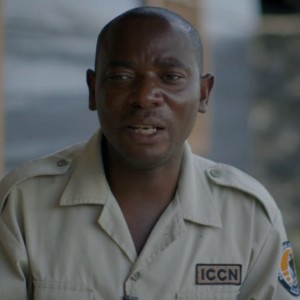 Provincial Director of Virunga National Park (Emmanuel de Merode) formed a plan with the Warden of the Central Sector of Virunga National Park, Rodrigue Katembo (adjacent picture), to gather objective and tangible evidence and documentation of SOCO International’s plans to exploit oil from the Congo.
Provincial Director of Virunga National Park (Emmanuel de Merode) formed a plan with the Warden of the Central Sector of Virunga National Park, Rodrigue Katembo (adjacent picture), to gather objective and tangible evidence and documentation of SOCO International’s plans to exploit oil from the Congo.
Rodrigue Katembo (Waden of the Central Sector of Virunga National Park) began an undercover investigation. He used small concealed video cameras (including a GoPro camera) to record face to face conversations with members of the Congolese Army, SOCO International plc employees, SOCO International plc subcontractors, SOCO International plc security and SOCO International plc supporters.
In the film you can see and hear SOCO International plc local supporters negotiating with Ranger Rodrigue Katembo and explaining that they are inline with SOCO International plc and that Emmanuel de Merode is the only person in the chain of authority of the park who is standing in way of SOCO International’s plan for big oil.
The local SOCO supporters explain that oil is worth billions and that Ranger Rodrigue Katembo will have some of that money too if he can help SOCO. The supporters state that everyone in the government (including the Minister of the Environment) in the capital (Kinsasha) have authorized SOCO and their oil plans. They state that they will arrange a meeting for Ranger Rodrigue Katembo with the Minister (Bavon N’sa Mputu Elima? Or Célestin Vunabandi Kanyamihigo?)
Ranger Rodrigue Katembo also captured video and audio of a captain in the Congolese Army (Captain Feruzi) stating that SOCO International needs him (Ranger Rodrigue Katembo) and that they will pay him $3000 dollars and also later when the oil is flowing that they will provide him with anything that he wants. Captain Feruzi states SOCO International wants Ranger Rodrigue Katembo to secretly feed them information on a regular schedule regarding the actions and plans of Emmanuel de Merode.
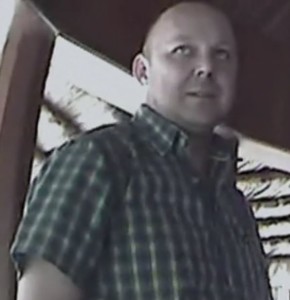 Ranger Rodrigue Katembo also captures video and audio footage of Pieter Wright (a white South African) – a SOCO security contractor (adjacent picture).
Ranger Rodrigue Katembo also captures video and audio footage of Pieter Wright (a white South African) – a SOCO security contractor (adjacent picture).
Pieter Wright explains to Ranger Rodrigue Katembo that SOCO will soon begin working in his area of the park and that they will be in contact with him (Ranger Rodrigue) soon.
Wright then passes Ranger Rodrigue a small amount of money. I’ve read elsewhere that it amounted to $50 dollars. This might not sound like much to an American but believe me it is a significant amount to an average working class Congolese citizen such as a park ranger. I’m not exactly sure how much money a park ranger earns in the Congo for his job but I know other people in the Congo who work as employees and earn about $10 dollars a month.
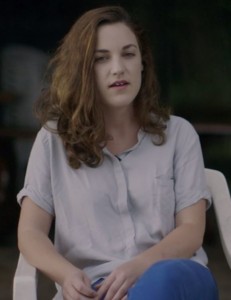 At almost thirty (30) minutes into the film we meet a young French freelance journalist (or war correspondent) who indicates that she has been living in Goma (a city adjacent to Virunga Nation Park), Congo for approximately one and a half years (I’m not sure at what point in time that she said that so I’m not sure exactly how long she’s now been in the Congo.)
At almost thirty (30) minutes into the film we meet a young French freelance journalist (or war correspondent) who indicates that she has been living in Goma (a city adjacent to Virunga Nation Park), Congo for approximately one and a half years (I’m not sure at what point in time that she said that so I’m not sure exactly how long she’s now been in the Congo.)
Her name is Melanie Gouby (adjacent picture).
There were twelve (12) armed rebel groups who operated (and most still do) in and around Virunga National Park (they all opposed the the Congolese Army). Melanie Gouby indicates that one rebel group, who call themselves M23 (March 23 Movement), started their conflict with Congolese Army at about the same time that SOCO International began exploring for oil in Virunga.
Melanie Gouby began to secretly video and audio record during her private meetings with SOCO International employees and members of the M23 rebel group.
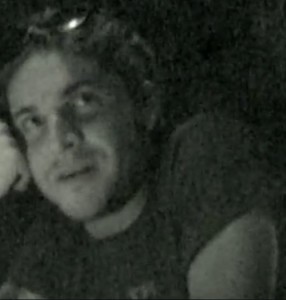 She met with Julien Lechenault – SOCO Internationl Fields Operation Supervisor in Goma (adjacent picture), on several occasions and secretly recorded video footage of the interviews.
She met with Julien Lechenault – SOCO Internationl Fields Operation Supervisor in Goma (adjacent picture), on several occasions and secretly recorded video footage of the interviews.
At one of the meetings Julien Lechenault states that best solution for counties such as the Congo is to be recolonized by Europe. He states that their is no other solution and that Europe must manage countries such as the Congo. He states that the Congolese are like children and cannot manage themselves.
Julien Lechenault also states that the only person standing in SOCO International’s way of oil exploration is Emmanuel de Merode. He states that Emmanuel has all of the power in the park even though ICCN (Congolese Institute for Nature Conservation) management (in Kinsasha) has already given SOCO permission to explore for oil in the park.
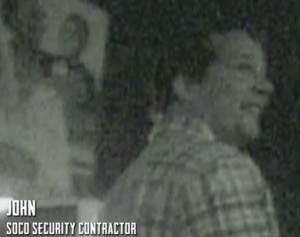 At one of the recorded meetings Julien Lechenault arrived with two other individuals.
At one of the recorded meetings Julien Lechenault arrived with two other individuals.
One was a SOCO Security Contractor named ‘John’ (British) who stated that he was a mercenary and apparently bragged about killing people and his life as a mercenary.
John admitted that SOCO paid the security contractors (he is one of them) to pay the rebels for protection.
Julien Lechenault indicated that SOCO doesn’t deal with the rebels but that SOCO’s security contractors are in daily communication with rebel groups. He indicates that SOCO does not pay rebels.
John (the self-styled mercenary) cut in asked Julien what did he think that he (John, a security contractor) was doing then [paying the rebels].
Julien Lechenault then told John to shut up reminded him that Melanie Gouby is a journalist.
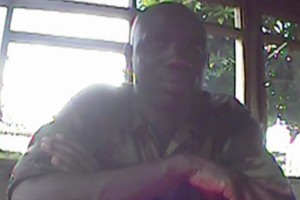 Melanie Gouby also met with M23 rebel spokesperson, Colonel Kazarama (adjacent picture).
Melanie Gouby also met with M23 rebel spokesperson, Colonel Kazarama (adjacent picture).
He states that some local Congolese in eastern Congo don’t like SOCO International and that Minister Vunabandi (Congo government official) asked him to calm these people and to let these people know that it is better to work with SOCO International than to work with Virguna National Park.
Colonel Kazarama states that he did his job.
Keep in mind that Colonel Kazarama and his men are rebels.
Colonel Kazarama also states that SOCO International will not be able to exploit oil from the Congo without paying them (M23 rebel group) a percentage.
At some point(s) in 2012 the M23 rebel group took over large areas of eastern Congo (including Goma, Rutshuru, Virunga National Park and other areas) and fighting between them and the Congolese Army spilled into and through the Virunga National Park. One of the young mountain gorillas named Kaboko (mentioned above in this report) at the gorilla orphanage died (DOB: July 25, 2012) during the attack due to what appears to a stress induced illness.
In September, 2012 Ranger Rodrigue Katembo attempted to prevent SOCO International employees from building an illegal structure in Virunga National Park. The next day he was arrested, tortured and and held without charges for seventeen (17) days.
In April, 2014 Emmanuel de Merode filed a report of SOCO International’s activities to the Congolese authorities. As he was driving to return to the park he was ambushed by unknown gunmen and shot several times (included being shot in the chest and stomach). He survived by exiting his vehicle with his rifle in hand and exchanging fire with the gunmen.
In June, 2014 SOCO International claimed that they would halt operations in Virunga National Park. However, they refuse to withdraw unconditionally and they continue to undermine the park. A review of SOCO website’s http://www.socointernational.com/ indicates that they are still operating (oil exploration and scientific studies involving a seismic survey) in Virunga National Park.
SOCO International has posted PDFs of permits, approvals and authorizations for oil exploration that they bought from corrupt and money hungry officials in the Democratic Republic of the Congo:
http://www.socointernational.com/index.php?cID=html_134
In response to the Virunga documentary SOCO International plc issued the following statements:
I wish that I could immediately do more to help Virunga National Park in the Democratic Republic of the Congo. I’m in the process of donating a small amount of money to the park but since I don’t use Paypal anymore it can’t be done immediately.
For now I’ve done my best (I hope) to present an objective review of the documentary and spread word of the film.
If anyone reading would like to make a donation directly to the Virunga National Park you may do so at the following link:
Please exercise your free speech in the comments section below. There are no stipulations of political correctness on this blog. Speak your mind, give us your thoughts, both objective and subjective. Share your ideas, hunches, inklings or your expertise. Please provide recommendation and corrections if you spot errors in fact within the blog report. Lastly, remember that posting a comment is much like casting a vote, so please do so.

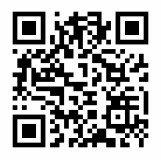

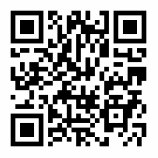

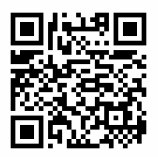

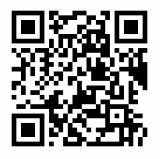
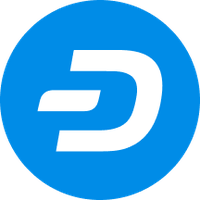
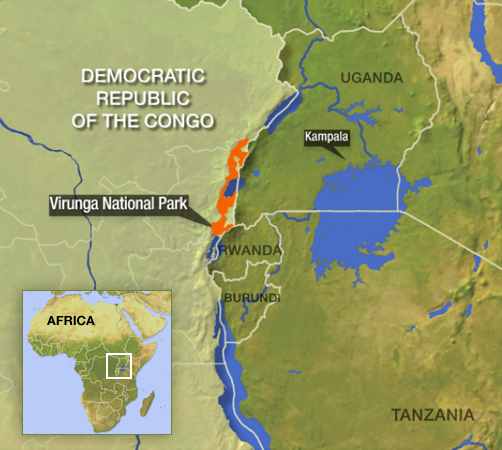
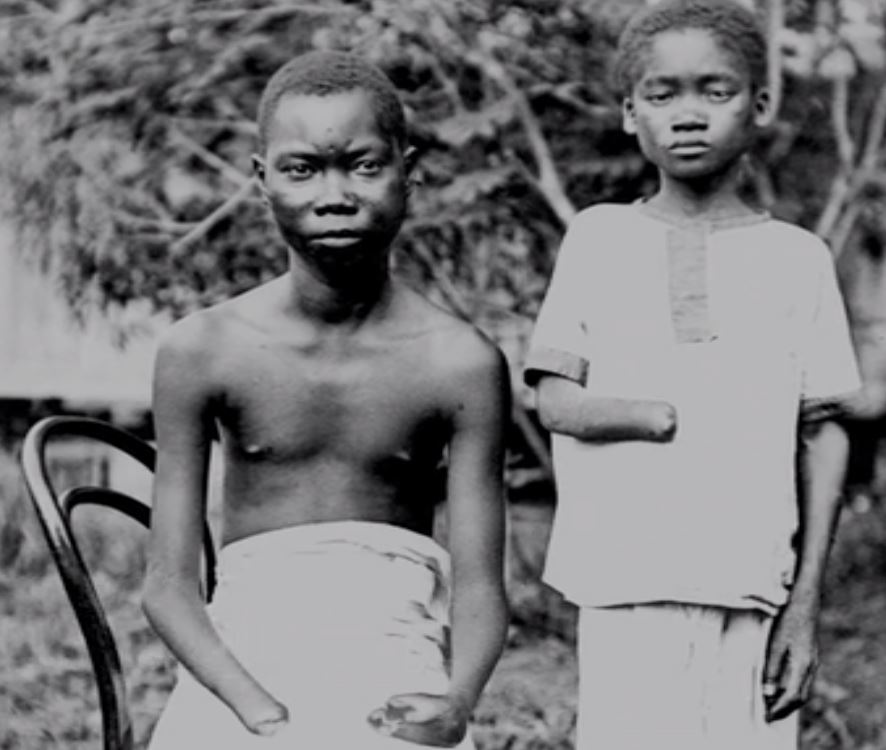
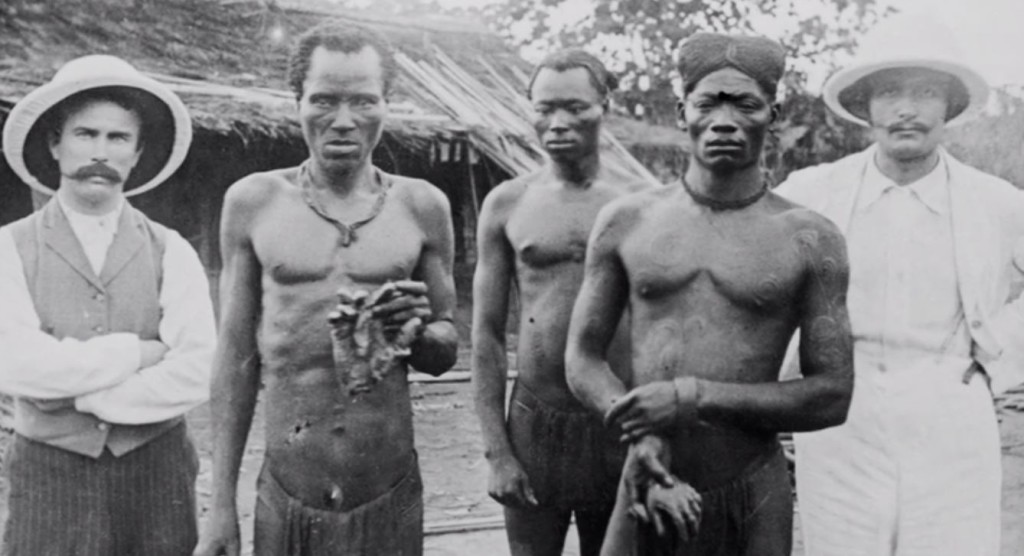
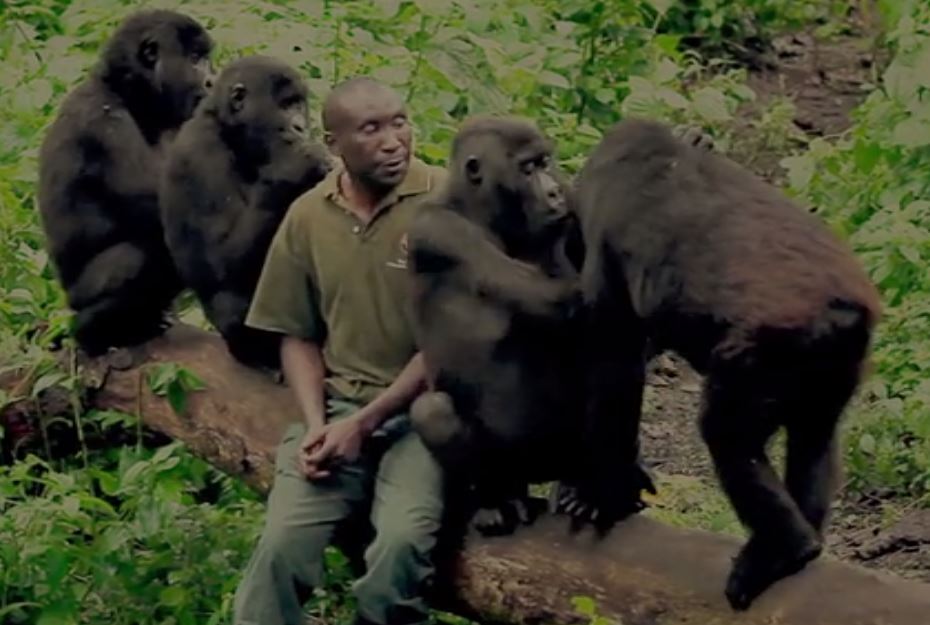
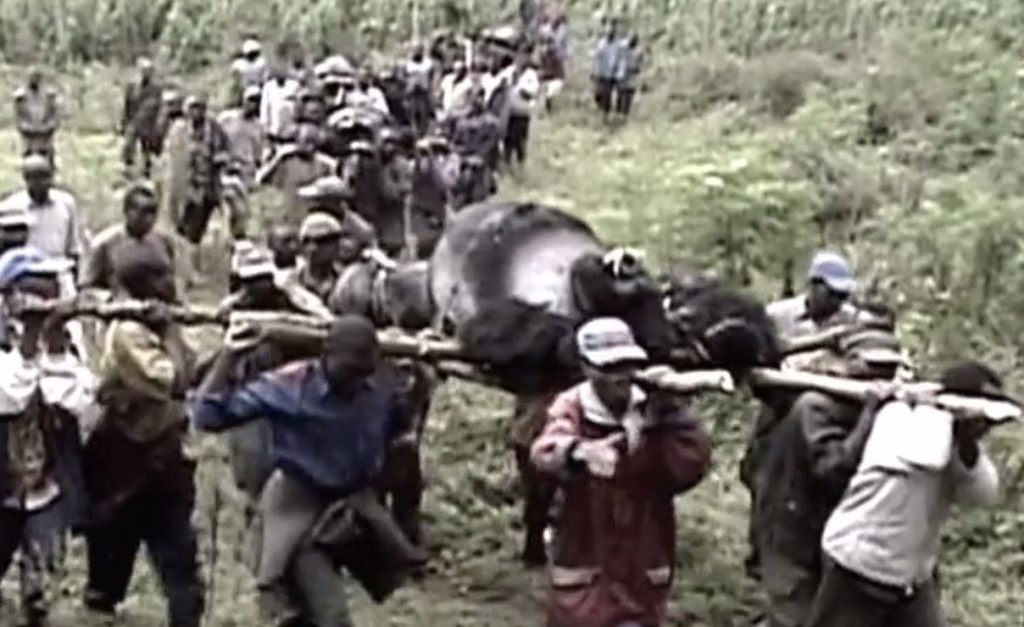

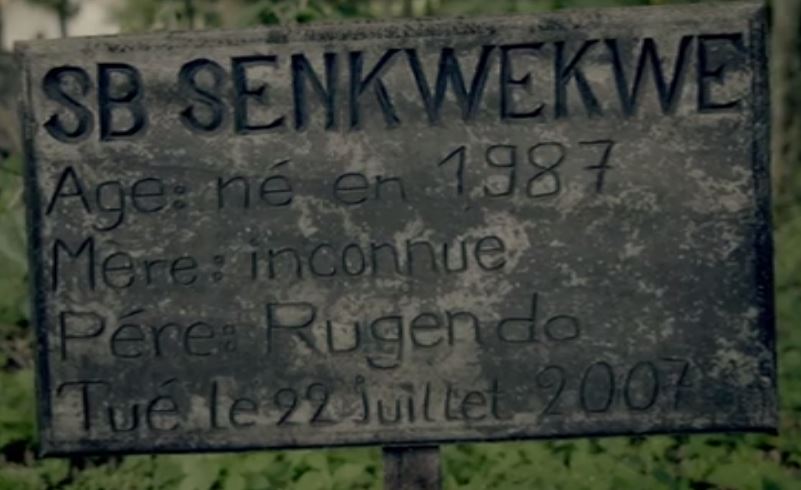
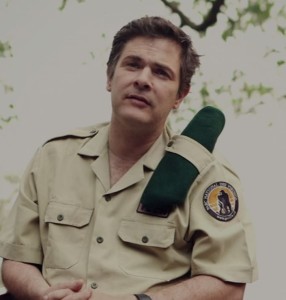
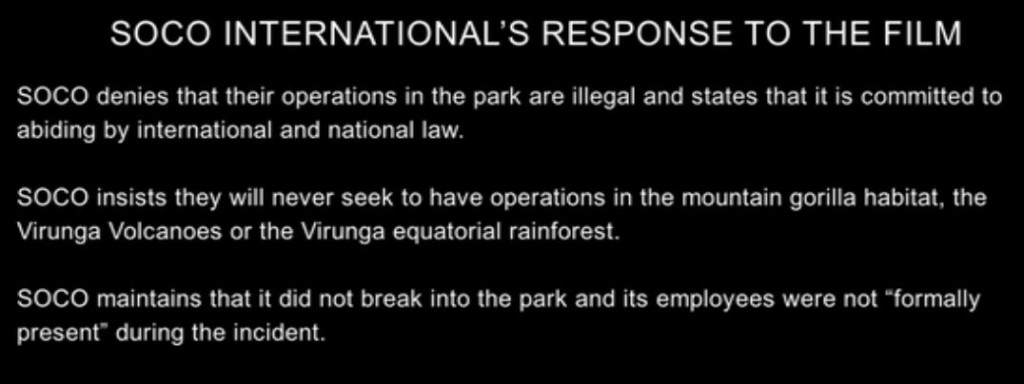
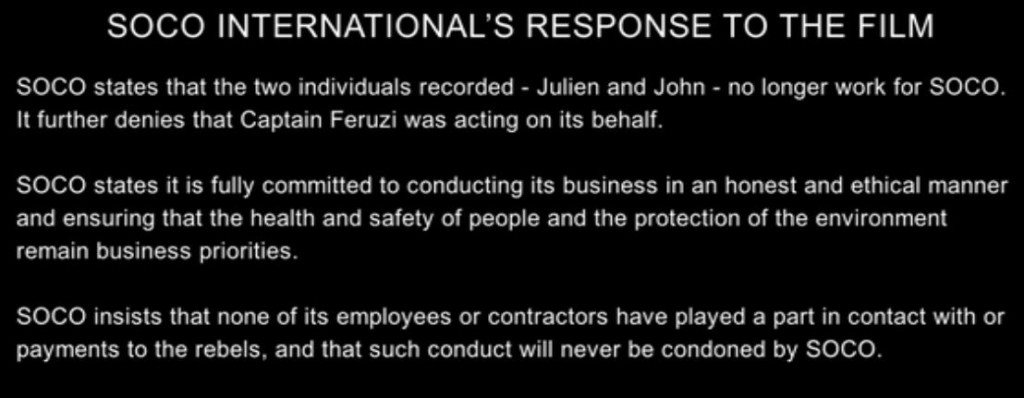
SOCO oil villain spotted in the Congo: Serge Lescaut
SOCO oil villain spotted in the Congo: Rui DeSousa
[VIDEO] 60 Minutes: Virunga: Africa’s Oldest National Park Is Under Threat
If readers are getting ideas that oil production would help the common people of the Congo then you are objectively wrong.
Europeans have been exploiting the African resources for hundreds of years.
Have you heard of Coltan? It’s a metal. Most readers (and most Americans in general) haven’t heard of it.
Without you wouldn’t have a cell phone or a computer. The Congo is one of the few countries were Coltan is mined. Congolese are exploited for cheap labor and rebels forces financed the companies doing the mining.
Read more about Coltan here:
http://abcnews.go.com/Nightline/story?id=128631
From what I’ve read and seen in videos it appears that mountain gorillas are very much like humans. They also have opposable thumbs and opposable big toes.
They are very social (they are even social with humans when approached in the wild) and live in family groups. They care for their young in a very human like way. They also appear to mourn their dead. One particular mountain gorilla even mourned her deceased child for approximately ten days.
These aren’t animals that should be legally slaughtered and under no circumstances should they be allowed to go extinct.
[VIDEO] Mountain Gorillas interacting with humans in the wild:
Netflix raises Oscar stakes with documentary contender ‘Virunga’
Reuters
by Lisa Richwine
Los Angeles, Friday Feb. 20th, 2015
Excerpt:
(Reuters) – Netflix Inc, the streaming video pioneer that shook up Internet television with “House of Cards,” loped into the heart of the Hollywood film world this awards season on the backs of some captivating mountain gorillas.
In a sign of the company’s ambitions, Netflix mounted a high-profile campaign to win the feature documentary category at Sunday’s Academy Awards with “Virunga,” the story of rare gorillas threatened by unrest and oil drilling in the Congo’s Virunga National Park.
It ran full-page ads in The New York Times, took over billboards in Hollywood, and hosted a screening attended by Bill and Hillary Clinton. Executive producer Leonardo DiCaprio helped promote the film.
…
Its visible Oscar push is one way Netflix aims to expand the reach of documentaries, Lisa Nishimura, Netflix vice president of original documentary and comedy, said in an interview.
Most documentaries that make it to theaters come and go quickly. The original documentaries on Netflix’s subscription service can live on-demand for years.
“We are bringing these films to a very global audience,” Nishimura said. “You start that conversation and people can easily access and continue to grow the profile of that film.”
“Virunga” debuted in a limited number of theaters and on Netflix in November.
…
Awards experts say “Virunga” could pull off an upset win at the Oscars, though the favorite is “Citizenfour” about U.S. government whistleblower Edward Snowden. “Citizenfour” was released by The Weinstein Company’s Radius-TWC unit.
A victory for Netflix would burnish its Hollywood credentials as it faces competition from streaming outlets like Amazon.com Inc.
…
Read more at:
http://www.reuters.com/article/2015/02/20/us-awards-oscars-netflix-idUSKBN0LO23620150220
Members of the Virunga documentary team posed for a couple of pictures (pic 1 of 2 below) in Los Angeles on Friday night (Feb. 20, 2015) a couple days before Oscards (87th annual Academy Awards):
Left to right: Producer Joanna Natasegara, Melanie Gouby – French freelance journalist ( or war correspondent), Andre Bauma (gorilla caretaker at Virunga National Park and Ranger at runga National Park ), Leonardo DiCaprio (Executive Producer), Rodrigue Katembo (Waden of the Central Sector of Virunga National Park and Ranger at Virunga National Park), Director Orlando von Einsiedel.
Members of the Virunga documentary team posed for a couple of pictures (pic 2 of 2 below) in Los Angeles on Friday night (Feb. 20, 2015) a couple days before Oscards (87th annual Academy Awards):
Left to right: Andre Bauma (gorilla caretaker at Virunga National Park and Ranger at runga National Park ), Leonardo DiCaprio (Executive Producer), Rodrigue Katembo (Waden of the Central Sector of Virunga National Park and Ranger at Virunga National Park), Director Orlando von Einsiedel.
I’m genuinely and objectively happy to see that the two Congolese citizens (Andre Bauma and Rodrigue Katembo) were permitted to travel to the United States to attend the Academy Awards for their Oscar nominated (Best Documentary) Virunga.
The winner for Best Documentary has not been announced but I’m fairly certain that Edward Snowden’s Citizenfour will win.
It seems to me that it would very tough for any documentary out there to compete with an Edward Snowden story.
I support Edward Snowden and if his documentary wins he certainly will have earned it.
I’d very much like to see Virunga win but I don’t know that a win would be justified when considering Snowden’s brave, heroic and objectively patriotic actions in exposing the United States government for monitoring its own citizens.
If it were any other year I would look for Virunga to win Best Documentary.
I feel sad that these two great documentaries have to compete against each other this year.
Update from Virunga:
In case you missed it, Soco International released their quarterly results yesterday.
Here’s our [Virunga’s] analysis of what they had to say….
Clifford Chance Independent Review
We welcome Soco International’s long awaited acknowledgement that there have been serious errors of judgement on their part. Similarly, with the introduction of a law firm in Clifford Chance, we expect that their investigation into the allegations against Soco will be conducted to the highest standards possible.
We would like to reiterate that we remain committed and available to assist with any inquiries Clifford Chance should wish to make in relation to the allegations put forward to the company.
We note that Soco’s statement on the independent review does not reference the allegations regarding bribery and corruption found in Virunga: The Movie and via other stakeholders, specifically focusing instead on ‘intimidation and/or human rights abuses’. It also states that ‘Upon the conclusion of the independent review, the Company will take any necessary steps and advise its stakeholders.’ This suggests potential for a lack of transparency.
As this Clifford Chance review is crucial to identifying and correcting potential failings in company oversight and governance procedures, we are asking the company to answer the following questions:
1. Will the Clifford Chance review also address the allegations relating to bribery and corruption?
2. Will the terms of reference as ‘defined and focused by Clifford Chance’ be made available to enable the stakeholders to understand and assess the scope of the independent review prior to completion?
3. Will the findings of the independent review be made public?
Furthermore, we note the company’s statement on its intentions for Block V is far from a clear and definitive protection for Virunga and its communities and contains some concerning sentences which deserve further scrutiny.
Drilling plans
Soco International’s comments on Block V:
“While we acknowledge that the DRC government is anticipating discussions with UNESCO involving the future of the Virunga National Park; we have no involvement in these discussions. After providing the DRC government with interpretation of the seismic results, SOCO will have no further involvement in the Block. Consequently, all costs incurred on Block V to date and any further costs anticipated in the course of 2015 have been written off as exploration expense in 2014. It is our intention to leave behind all the humanitarian aid that SOCO has provided in medical, water purification and communications facilities for the benefit of the people.”
We remain very cautious in the absence of a firm commitment on the existing boundaries of Virunga National Park and express concern that they should be the party to announce news of discussions on potential boundary changes despite claiming to have no part in said discussions. In light of this we are asking the company to clarify the following:
1. If boundary changes occurred in Virunga, would Soco International seek to re-enter the territory around Lake Edward within the park’s current legal boundaries?
2. Will Soco International allow its existing licence for Block V to lapse or does it have the right to assign it to a third party? If so, does it have plans to do so?